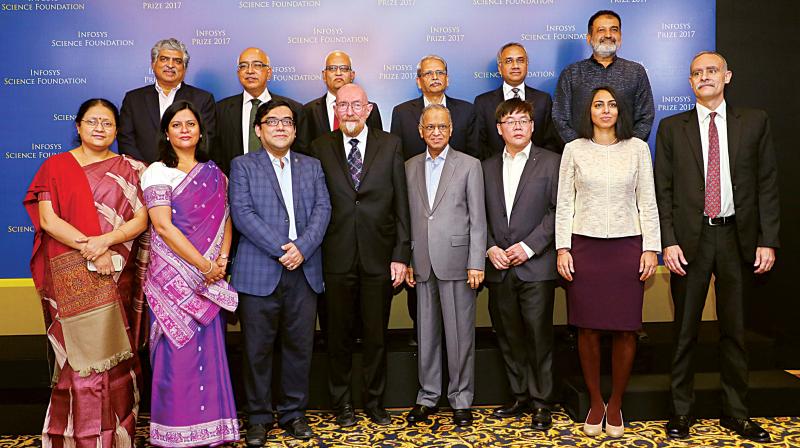Use science wisely to educate public, leaders: Nobel laureate

BENGALURU: Nobel Laureate Prof Kip S. Thorne on Wednesday urged the Infosys Prize 2017 Laureates to use science wisely to educate the public and leaders of relevant scientific facts.
Taking a dig at the Trump administration in the US, he said, “Problems such as climate change and the control of nuclear weapons require solutions from the field of science. Unfortunately, the world has some leaders, especially in America, who are not only ignorant of science but are also dismissive of scientific facts.”
He was addressing the audience after felicitating the winners across six categories with a 22-karat gold medallion, a citation certificate and a cash prize of Rs 65 lakh.
Congratulating the winners, Prof. Thorne said, “The Infosys Science Prize, like the Nobel Prize, is an inspiration for young scientists and the general public alike. It calls attention to the beauty of science, and also the power of science to make human life better, both culturally and materially.”
While the discoveries of a genetic marker for breast cancer, determination of co-occurrence of HIV and cancers, and the role of white matter in Alzheimer’s disease won Prof. Sanghamitra Bandyopadhyay, Director of Indian Statistical Institute (ISI), Kolkata the prize under Engineering and Computer Science category, Prof Ananya Jahanara Kabir was awarded under Humanities discipline for her explorations of historical elements in colonial modernity, especially for her ethnography of cultural and political life in Kashmir. Prof Ritabrata Munshi from Tata Institute of Fundamental Research (TIFR) was adjudged winner in Mathematical Sciences for his contributions to analytic aspects of number theory and for establishing important estimates known as sub-convexity bounds for a large class of L-functions with methods that are powerful and original.
The ground-breaking work in the emerging field of DNA architecture won Prof. Yamuna Krishnan from the University of Chicago the award in Physical Sciences.
Under the Social Sciences category, Prof Lawrence Liang was conferred with the award for his creative scholarship on law and society, while Prof. Upinder Singh Bhalla from the National Centre for Biological Sciences (NCBS) won the Prize in the Life Sciences discipline for his pioneering contributions to the understanding of the brain’s computational machinery. The winners of the ninth edition were chosen from 236 nominations by jurors headed by Prof Pradeep K. Khosla (Engineering and Computer Science), Prof Amartya Sen (Humanities), Dr Inder Verma (Life Sciences), Prof Srinivasa S. R. Varadhan (Mathematical Sciences), Prof. Shrinivas Kulkarni (Physical Sciences) and Prof Kaushik Basu (Social Sciences).

